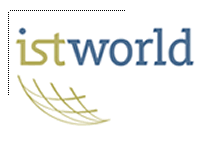The objective of the project is to set up and populate an information portal with innovative functionalities that helps to promote RTD competencies in IST in the New Member States (NMS) and Associate Candidate Countries (ACC) and facilitates and fosters the involvement of different research entities in joint RTD activities.
The portal will contain information about RTD actors on the local, national and European level, such as persons, research groups, organisations and projects, and their experience and expertise. The portal will improve upon existing on-line services by offering the following innovative functionalities on top of the information repository:
- Partner Finding Tool
- Social Network Identification
- Forecasting/Prediction
- Expertise Identification
The target user group are organisations from all countries looking for specific RTD competencies, organisations from NMS/ACC wishing to promote their own competencies, and service providers. The information structure of the portal will be suitable for representing personal and organisational competencies, expertise and social networks. Web forms will be provided easy self-registration of RTD actors and web mining techniques will be employed for automated updates.
The portal is based on techniques and tools developed in previous and current research projects. Advanced techniques for automatic data acquisition, classification, knowledge extraction, trend detection and prediction will be implemented as services to support partner search for IST proposals and commercial projects. Techniques from social network analysis will be used for trust net monitoring, authority identification, community identification and monitoring, and prediction of community evolution. Moreover, it will offer a service for community building and maintenance.
Partners
Institute Jozef Stefan, Slovenia; Ontotext Lab (Sirma Group Corp.), Bulgaria; RTD Talos, Cyprus; Institute of Information Theory and Automation, Czech Republic; Archimedes Foundation, Estonia; Computer and Automation Research Institute (Hungarian Academy of Sciences), Hungary; Institute of Mathematics and Computer Science, University of Latvia, Latvia; Lithuanian Innovation Centre (LIC), Lithuania; Projects in Motion, Malta; Silesian University of Technology, Poland; National Institute for Research and Development in Informatics, Romania; Slovak University of Technology, Slovakia; TUBITAK, Turkey; The Council for the Central Laboratory of the Research Councils, United Kingdom; German Research Center for Artificial Intelligence GmbH (DFKI) - Co-ordinator, Germany


